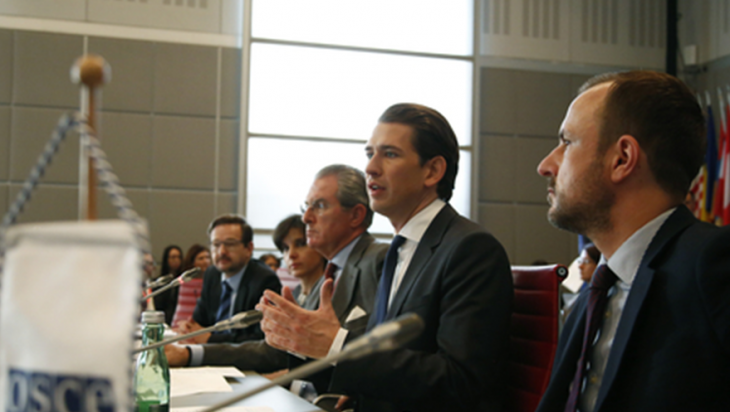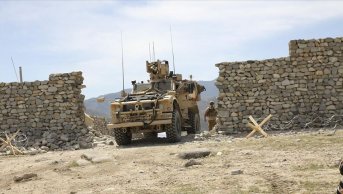An Evaluation of the OSCE Report on Violent Extremism and Radicalisation that Lead to Terrorism

Peter R. Neumann, the OSCE Chairperson in Office’s Special Representative on Countering Radicalisation and Violent Extremism since January 2017 has published a detailed report entitled “Countering Violent Extremism and Radicalisation that Lead to Terrorism: Ideas, Recommendations, and Good Practices from the OSCE Region” as a result of his term as the SR and based on his official visits to 15 participating states and 6 field operations as well as the OSCE Secretariat, the Office for Democratic Institutions and Human Rights (ODIHR) and the High Commissioner on National Minorities (HCNM). In his report, Neumann first define key concepts and dynamics, then evaluate OSCE’s current and future role, and lastly identify areas of good practice within the context of fighting radicalization and violent extremism. Here, a brief overview of this report will be presented.
First it should be noted that extremism is referred to as “show[ing] disregard for the life, liberty, and human rights of others” in the report. And violent extremism is doing so in a violent way. However, it is also accepted that it is quite a difficult task having a definition for such terms accepted by all concerned parties, which can gave way to manipulation and divergent views. In terms of the drivers of radicalization, the report refers to three main areas, namely grievances of people pushing them for such mind-sets, needs that force people to look for alternative suppliers, ideas which can be radical or extremist themselves, people connection and interactivity as a radicalising factor, and violence which can easily give birth to a reactionary wave of violence. As some major drivers, indiscriminate repression, violent conflicts, and migration are also mentioned. Therefore, counter-terrorism and counter-radicalization efforts, apart from the obvious security-related dimension and military measures, cannot be limited to such measures, but should incorporate political, social, ideological, psychological, economic etc. factors in order to be effective. In the report, the difference between prevention which refers to a pro-active effort to avoid new individual’s journey towards radicalization and de-radicalization which refers to a process targeting already radical people aiming at reversing the process is also highlighted.
OSCE, with 57 participating states and 11 partner countries, following the tragic incident of 9/11, has established its Action against Terrorism Unit in 2002. Action against Terrorism Unit is in charge of following points; maintaining the Counter-Terrorism Network, a newsletter for counter-terrorism professionals from across the OSCE area; helping to organise the yearly OSCE-wide Counter-Terrorism Conference; promoting the implementation of international legal conventions and enhancing criminal justice cooperation on counter-terrorism; developing an e-learning module on countering terrorists‘ use of the internet; Protecting non-nuclear critical energy infrastructure via public-private partnerships; strengthening travel document security through workshops for law enforcement and border guards; countering terrorist finance by training relevant officials, typically in collaboration with United Nations agencies. Leaders against Intolerance and Violent Extremism (LIVE) and #UnitedCVE initiatives, on the other hand, offer important tools to reach out to the civil society leaders and the youth. The OSCE also run field operations in many countries regarding the subject including Bosnia, Uzbekistan, Tajikistan, FYROM, Montenegro, Serbia Several key documents are also important within the context of OSCE’s efforts to counter radicalization and violent extremism. These are the 2008 Ministerial Council Decision on “Further Promoting the OSCE’s Action in Countering Terrorism”, the Consolidated Framework for the Fight against Terrorism in 2012, and the 2015 and 2016 Ministerial Declarations. These efforts aimed at making countering radicalization and violent extremism part of OSCE’s agenda and gradually increase the OSCE’s level of engagement regarding these phenomena. In the report, it is rightly stated that almost all OSCE member countries has been affected by radicalization and violent extremism, which, only in 2016, claimed more than one thousand lives in OSCE countries. Since 2012, more than 10,000 citizens or permanent residents of OSCE countries have joined groups like al-Qaeda and ISIS/ISIL/DAESH. Besides such tragic figures, radicalization and violent extremism challenged people’s trust to their state mechanisms and endangered dialogue and peaceful coexistence between people from different backgrounds.
In terms of the case studies examined during the preparation phase of the report, some of them are as follows; Fryshuset/EXIT (Sweden), Active Change Foudnation (UK), The Royal Atheneum (Belgium), Countering Extremist NArratives (Uzbekistan), Seriously (France), Nahla (Bosnia-Herzegovina), Mothers School (Tajikistan), Support for Child Refugees (Turkey-Turkish National Police), Advice Centre Radicaliation (Germany), Derad (Austria), and the Arhus Model (Denmark).
According to the report, OSCE, due to “its role in preventing and resolving conflicts, promoting human rights, and safeguarding the rights of national minorities”; its “strong local presence, particularly in Central Asia and the Western Balkans”, and its “diverse membership and convening power” can play important roles within this context. Still, however, due to linguistic differences, divergent views about drivers and consequences of radicalization and violent extremism, as well as lack of empirical data; there are important difficulties OSCE has been experiencing. For instance, divergent views among the member states about self-determination, foreign occupation, military interventions, “double standards”, and the “right of armed resistance” particularly engenders serious difficulties in terms of cooperation possibilities and possible areas of cooperation, which underlines one again the controversial hot debate about how to differentiate between terrorists and foreign fighters. It is also widely known that in many cases while for some member states some groups are the first, for some it’s the latter or vice versa. To list such difficulties and divergent views more specifically, in the report, following issues are mentioned: disagreement on the meaning of terrorism; different priorities and levels of enthusiasm; excessive sensitivities over language; lack of introspection; international cooperation against terrorism can be overshadowed by wider political disagreements; counter-terrorism approaches are based on fundamentally different philosophies
The report suggests that in terms of what the OSCE and member states can further do in terms of empowering the efforts of countering radicalization and violent extremism, the OSCE should raise awareness about the importance of political and structural drivers of radicalization with an eye on the emerging new issues including migration; the OSCE can Lead international capacity-building efforts in countering violent radicalisation member states should commit resolving problems stemming from radicalization even this requires re-evaluation of their own policy lines; capacity-building efforts needs to be intensified; and the OSCE should expand their operations in a way that it can act as an international "clearing house" for good practices.









